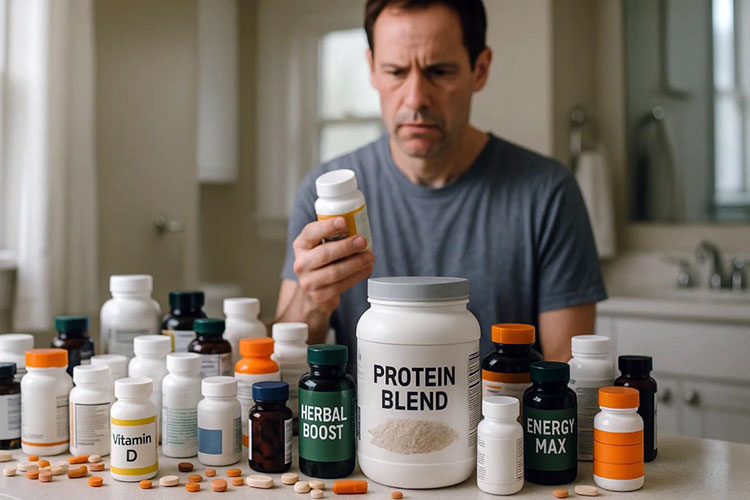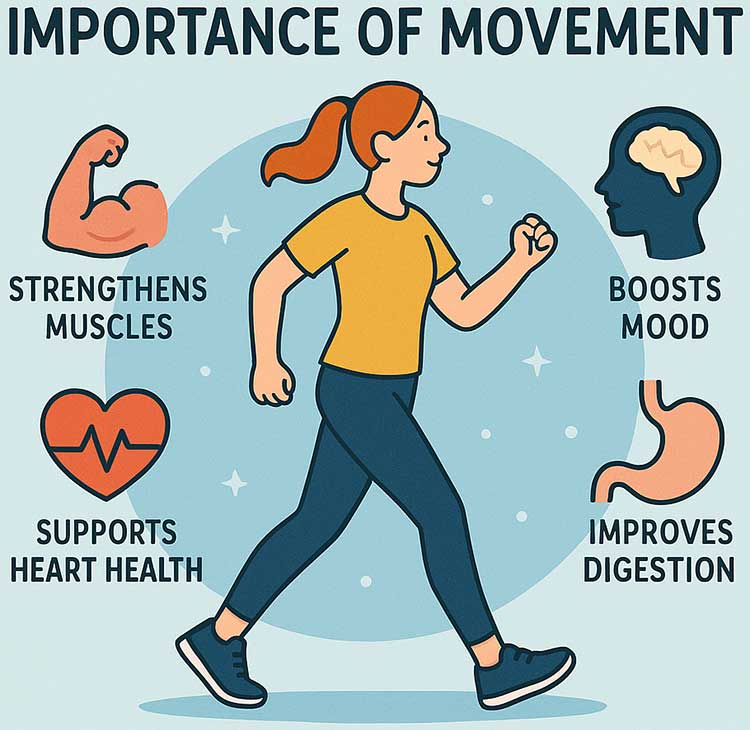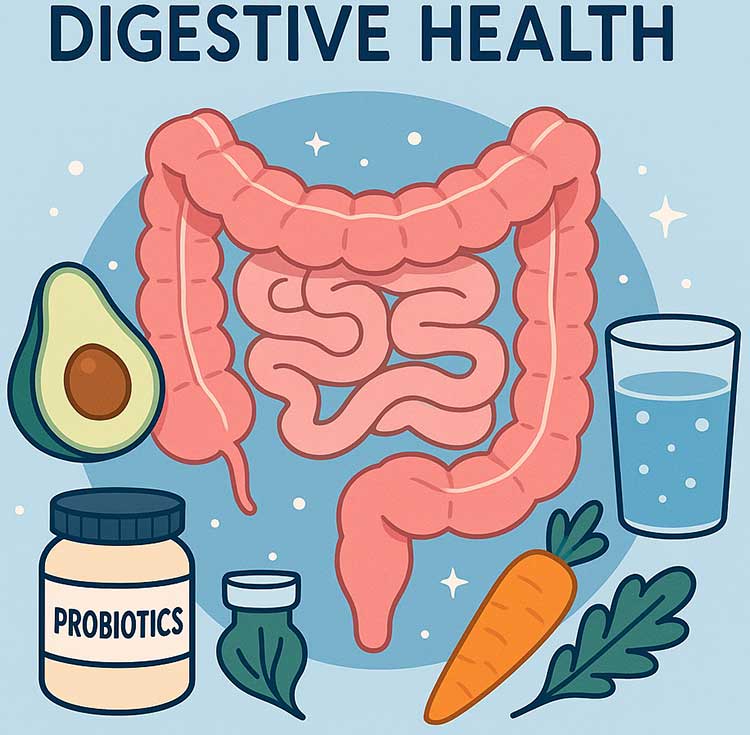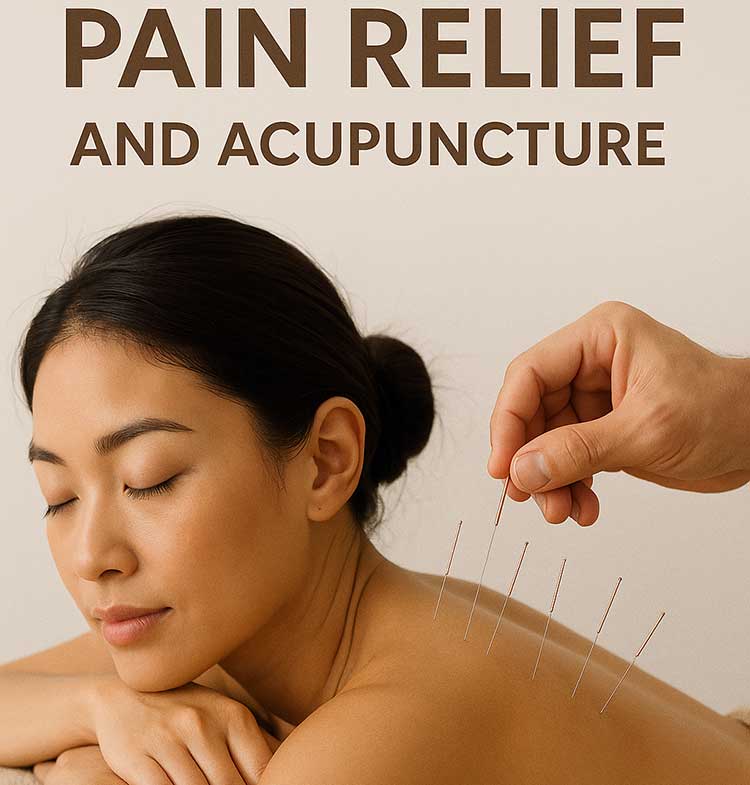The Hidden Dangers of Overusing Supplements: Are You Taking More Than You Should?
Dr. Tatyana's Health and Wellness Blog
Treating the whole person to restore optimal health. Check back often for up-to-date news and information about acupunture and Chinese medicine.
Most Recent Posts ...
Posted on: 2/16/2026
Posted on: 2/2/2026
Posted on: 1/19/2026
Posted on: 1/5/2026
Search All Blog Posts
Blog Post Archive Categories
- Herbs for Better Digestion: Natural Support for a Healthier Gut
- Why Moving Your Body Matters: The Hidden Risks of a Sedentary Lifestyle
- Top 5 Ways to Stay Healthy This Winter and Avoid the Flu
- Acupuncture & Herbal Medicine for Digestive Health: Healing the Center of Your Body
- Acupuncture for Pain Relief: A Natural, Effective Solution
- Acupuncture for Insomnia & Anxiety: Restoring the Calm Within
- Chronic Fatigue and Chronic Inflammation: A Holistic Look Through Western and Eastern
- The Hidden Dangers of Overusing Supplements: Are You Taking More Than You Should?
- The Importance of Exercise and How to Stay Motivated for a Healthier You
- Vitamin Toxicity
- Certain vitamins, like A, D, E, and K, are fat-soluble, meaning they are stored in the body rather than excreted like water-soluble vitamins (such as vitamin C and B-complex). Taking excessive amounts can lead to toxicity.
- Example: Too much vitamin D can cause calcium buildup in the blood, leading to kidney damage.
- Certain vitamins, like A, D, E, and K, are fat-soluble, meaning they are stored in the body rather than excreted like water-soluble vitamins (such as vitamin C and B-complex). Taking excessive amounts can lead to toxicity.
- Mineral Imbalances
- High doses of one mineral can interfere with the absorption of another. For instance, too much zinc can deplete copper levels, leading to anemia and neurological issues.
- Excess iron can be dangerous, particularly for those who do not have a deficiency, increasing the risk of liver damage.
- High doses of one mineral can interfere with the absorption of another. For instance, too much zinc can deplete copper levels, leading to anemia and neurological issues.
- Unintended Drug Interactions
- Many supplements interact with medications, sometimes making them less effective or causing dangerous side effects.
- Example: St. John’s Wort, often taken for mood support, can interfere with antidepressants, birth control pills, and blood thinners.
- Many supplements interact with medications, sometimes making them less effective or causing dangerous side effects.
- Digestive and Organ Stress
- Overuse of certain supplements, like protein powders and creatine, can put excessive strain on the kidneys and liver.
- High doses of magnesium can cause digestive upset, including diarrhea and dehydration.
- Overuse of certain supplements, like protein powders and creatine, can put excessive strain on the kidneys and liver.
- False Sense of Security
- Relying too much on supplements can lead people to neglect a balanced diet. Whole foods provide a range of nutrients in their most natural and absorbable form, something that isolated supplements cannot fully replicate.
- Consult a Professional – Always speak with a doctor, nutritionist, or qualified herbalist before adding new supplements to your routine.
- Get Tested First – Don't assume you have a deficiency. Lab tests can reveal what your body actually needs.
- Follow Recommended Dosages – More is not always better. Stick to the recommended daily intake unless instructed otherwise by a professional.
- Focus on Food First – A balanced diet rich in fruits, vegetables, proteins, and healthy fats should always be the foundation of good nutrition. Supplements should complement—not replace—real food.
- Be Wary of Marketing Hype – Just because a product is labeled as “natural” or “essential” doesn’t mean it is safe or necessary.
The Hidden Dangers of Overusing Supplements: Are You Taking More Than You Should?

In today's health-conscious world, supplements are everywhere. From multivitamins and herbal extracts to protein powders and specialty blends, the market is overflowing with products promising better health, more energy, and longer life. While supplementation can be beneficial in certain cases, many people are unknowingly taking too much—or the wrong kinds—without understanding the potential risks.
The Supplement Overload Epidemic
Many people believe that if a little is good, more must be better. This mindset has led to an increasing trend of over-supplementation, where individuals take multiple vitamins, minerals, and herbal extracts without proper guidance. While some supplements can fill nutritional gaps, others can be unnecessary—or even harmful—when taken in excess.
Common Risks of Over-Supplementation
How to Supplement Wisely
Supplements can play a helpful role in supporting health, but overusing them—or taking the wrong ones—can do more harm than good. Instead of blindly following trends, it’s important to take a mindful approach, ensuring that supplementation is done safely and with purpose.
If you’re unsure whether you're taking too many supplements, consider consulting a healthcare professional who can guide you toward what’s truly beneficial for your body. Remember, when it comes to health, balance is key!




